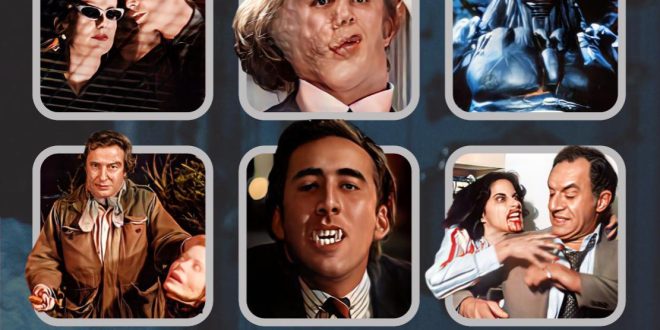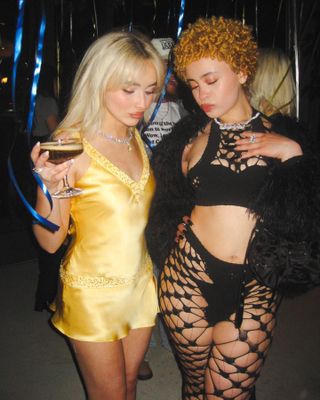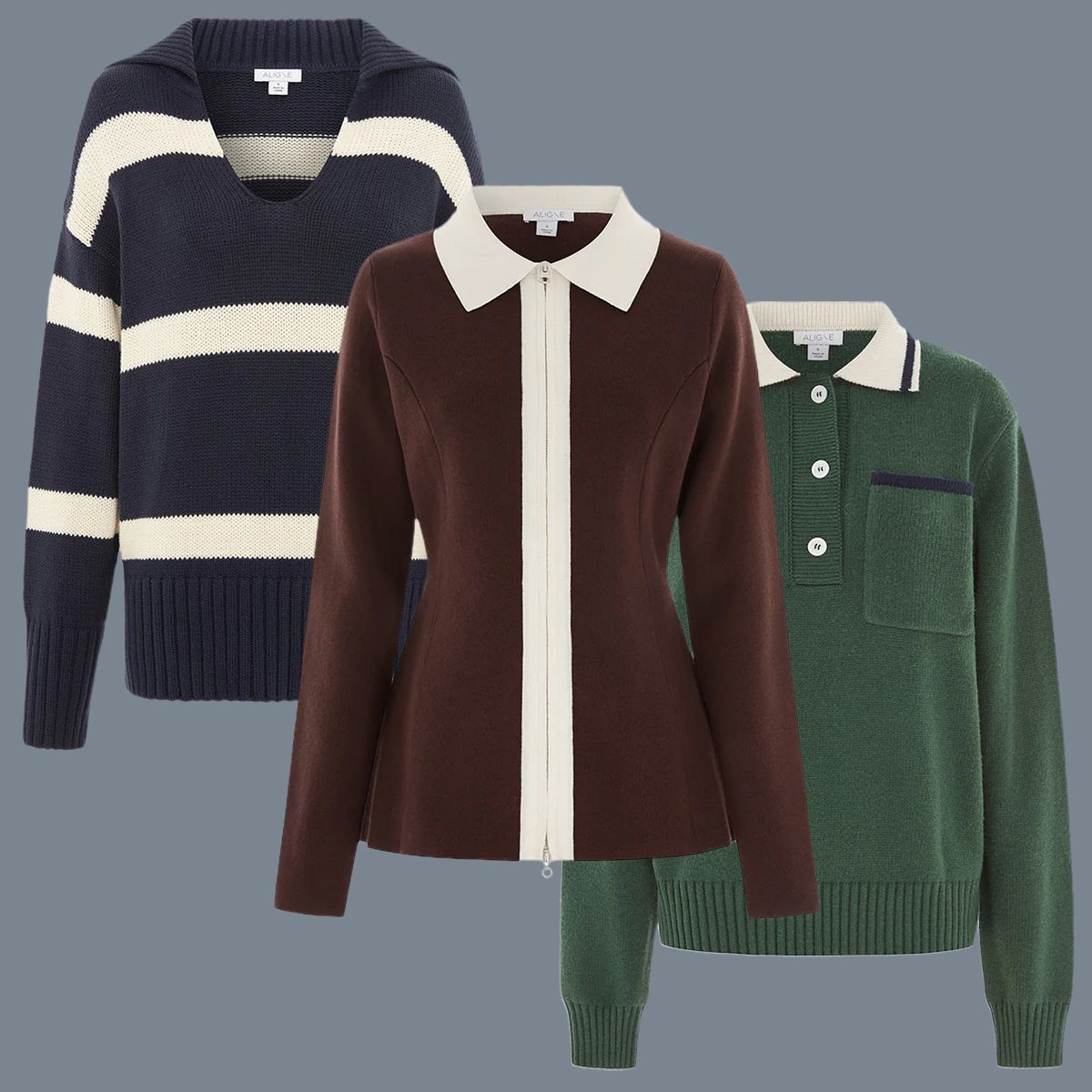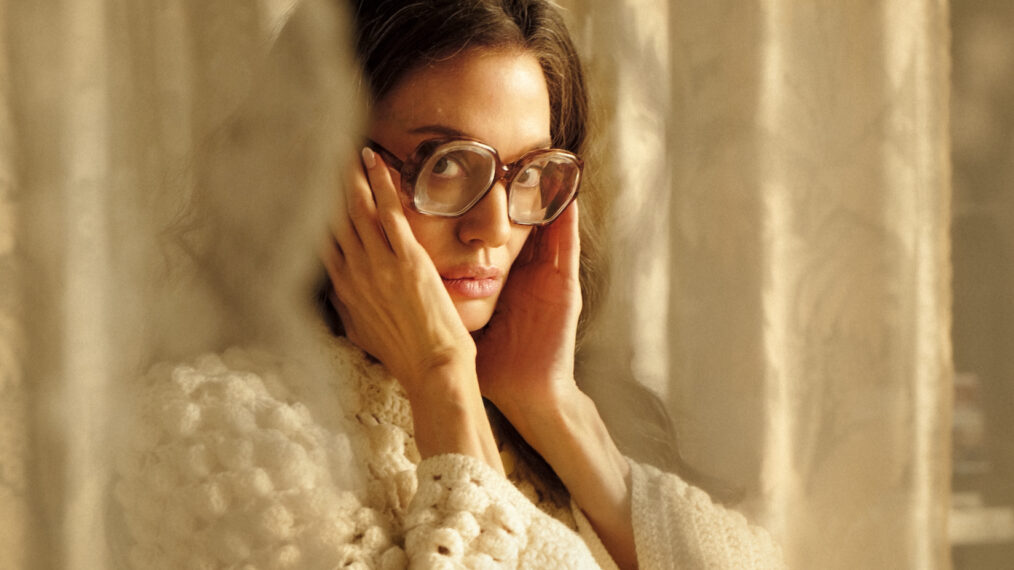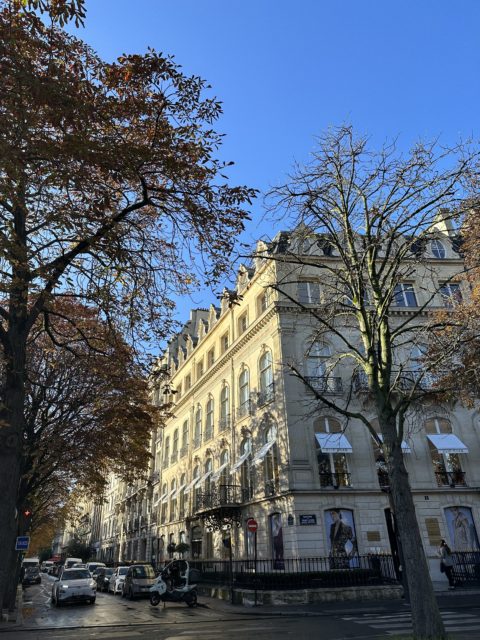In an era overstuffed with horror films exploiting any premise imaginable, it was only a matter of time before someone turned to the ominous imagery of tarot cards. Enter “Tarot,” the feature debut of directors Spenser Cohen and Anna Halberg, which adapts the 1992 young adult novel “Horrorscope” by Nicholas Adams. With a familiar supernatural slasher setup involving a cursed tarot deck unleashing death upon a group of college friends, the film had ripe opportunity to explore unique frights through the symbolic tarot archetypes. However, while occasionally stylish, “Tarot” mostly retreads well-trodden genre territory, failing to stack the deck with enough originality or substance to rise above conventional horror fare.
The premise, admittedly ripe with potential, follows a birthday gathering gone awry when the requisite group of young people foolishly meddles with forces beyond their comprehension. In this case, it’s an enticing but ill-advised tarot reading from an antique deck that summons supernatural entities manifesting as grotesque avatars of the tarot’s major arcana cards. One by one, the friends find themselves fending off their foretold fates depicted in gruesome, tarot-inspired set pieces.
While hardly revolutionary, the tarot premise allows for some admittedly inventive and striking monster designs as the creepy figures stalk their victims. It’s in these tense sequences where Cohen and Halberg’s visual talents as directors shine, crafting some slickly-produced, atmospheric horror vignettes worthy of bigger budgeted fare. The cinematography by Elie Smolkin makes excellent use of shadows and creepy lighting, while the sound design adds an appreciated layer of menacing texture to the stalking scenes.
Whenever “Tarot” veers away from its monstrous tarot-themed kills into more conventional slasher territory, the cracks begin to show. The characters, despite a game young cast, are little more than disposable horror movie archetypes devoid of any real depth or dimensionality beyond basic personality descriptors. The dialogue frequently falls into the trap of exposition dumps, telling rather than showing in clunky fashion.
And while the death sequences make creative use of the tarot imagery, the overall narrative trajectory follows such a predictable, well-trodden path that even non-horror aficionados will easily map out where the story is going beat-for-beat. By the final act, the repetitive structure and lack of genuine surprises or subversive twists on the genre become slogs to sit through.
For all its atmospheric style and bursts of creepy tarot-fueled creativity, “Tarot” still can’t quite stack the deck enough to rise above its derivative slasher roots. While potentially fun for undemanding teen horror fans, the film is simply too formulaic and thin to offer more discerning genre enthusiasts anything substantially new or memorable.
Let’s delve deeper into the card-themed frights and shortcomings as we turn over this movie’s cards…

The Upright: Creepy Tarot Imagery & Slick Production Values
From a purely visual and atmospheric standpoint, “Tarot” plays one of its stronger suits. Cohen and Halberg clearly have an eye for creepy, gothic production design and unsettling imagery. The tarot-inspired monster designs are highlights, bringing a macabre creativity to life as the snarling figures resembling porcelain dolls fused with classical tarot art.
The design of The Fool, portrayed as a creepy court jester-like creature, is particularly unnerving. The extended sequence where it menacingly stalks and contorts its way through an elevator shaft is one of the film’s most effectively tense set pieces. Similarly, The Hermit’s introduction in a dimly-lit subway station creates a palpable atmosphere of dread.
Cinematographer Elie Smolkin’s camerawork makes excellent use of shadows, crisp lenses and judicious pops of colored lighting to give the supernatural threats a striking presence. The sound design also deserves praise, with every slither, crunch and bone snap adding gruesome texture to the violent encounters.
From a technical standpoint, Cohen and Halberg show flashes of talent that could lead to bigger things with more resources at their disposal. It’s just a shame that “Tarot’s” narrative backbone isn’t quite as confidently constructed as its creepy visuals and set pieces.

The Reversed: Formulaic Plot & Thin Characterizations
While the tarot imagery allows the directors to flex their stylistic muscles, the story containing those visuals is woefully familiar teen horror stuff. The basic premise of youths unwittingly unleashing a supernatural force that then picks them off one-by-one is slasher film boilerplate at this point. “Tarot” rarely deviates from those well-worn conventions.
The biggest issue is the near-total lack of compelling or substantive characterization. Despite being a relatively fresh-faced young cast, the characters are essentially interchangeable horror movie archetypes. There’s the rebel girl, the jokester, the former couple with unresolved tension, and so on. But none are granted any real depth, background or distinguishing personality traits beyond those basic descriptors.
The dialogue, while sometimes amusingly self-aware, frequently falls into the trap of clunky exposition dumps. At one point, the film literally grinds to a halt as an elderly tarot expert (Olwen Fouéré) relays the backstory of the cursed deck in a torturously long scene. It’s emblematic of the movie’s struggles to organize information in a natural, engaging way.
Consequently, there’s little emotional investment in watching these friends get gruesomely killed off in tarot-themed ways. Their fates are purely physical, lacking in any deeper metaphorical or psychological resonance. When the characters are this thinly sketched, it becomes nearly impossible for the audience to latch onto more than the basic fright factors at play.
Combine that with a plot trajectory so rote and predictable that even non-horror fans will be able to accurately map out each story beat, and you’re left with a film that simply cannot capitalize on its strong atmospheric visuals. No matter how creepy the tarot figures look, they’re still chasing cookie-cutter victims through a cycle of violence rendered toothless by its utter familiarity.
So while “Tarot” may be a fun enough entry-level horror flick for younger viewers, it fails to offer enough new or substantive scares to make it rise above its derivative genre trappings. For those already intimately familiar with horror’s deck of tricks, the hand dealt here is simply too stale to make for an especially memorable experience.

The Major Arcana: When the Frights Connect
Despite its narrative flaws, “Tarot” does manage to briefly reshuffle the deck and serve up some entertainingly spooky sequences when all its elements coalesce. These are the moments when the film’s tarot premise feels most fully realized and creatively expressed.
Take the introduction of The Magician, which unfolds like a delightfully macabre magic act gone horrifically awry. As Paige (Avantika Vandanapu) attends a college party, the setting provides an innocuous backdrop for the tarot creature’s grand entrance. What begins with simple party tricks like making a flower appear soon descends into grotesque body horror. The Magician’s snarling mask and spindly limbs create a striking visual juxtaposed against the mundane college setting.
It’s a fantastic example of taking the core tarot symbolism and interpreting it through a cinematic horror lens. The staging, effects work and Vandanapu’s committed performance combine to create a memorable setpiece that allows Cohen and Halberg to flex their stylistic chops to the fullest. For once, the rote plotting falls away as the filmmakers tap into something richer – applying the tarot’s esoteric meanings to craft a suspenseful, startling sequence.
Similarly, the climactic showdown manages to rally the movie’s strengths into an atmospheric final battle. As our surviving protagonists make a last-ditch effort to banish the tarot forces, the ramshackle cabin setting allows for dynamic camerawork amid the clutter. There’s a palpable tension as the characters scramble among the tarot imagery and shadows envelop the frame. While perhaps overly protracted, it’s an extended showcase of “Tarot” operating in its creative horror sweet spot.
It’s just a shame that, outside of these sporadic sequences, the movie is unable to maintain that level of inspired, tarot-centric creativity and excitement. For every frightening flourish, there are just as many slack periods where the film lazily retreads overly familiar genre footsteps. A great hand requires more than just a few strong cards to make a lasting impression.

The Judgement: Style Can’t Outweigh Substance
Sophomore horror filmmakers often face an uphill battle in crafting something truly original and memorable on a limited budget. So in that respect, the team behind “Tarot” deserve some credit for swinging for the fences with an admittedly inspired premise. Adapting the symbolic imagery and archetypes of tarot into a supernatural slasher framework has ripe potential to tap into both visceral and metaphorical horror veins.
And to be fair, directors Spenser Cohen and Anna Halberg show flashes of stylistic talent that could lead to bigger things down the line. When they’re able to fully commit to the tarot conceit, the movie crackles with a macabre energy and visual creativity befitting the source material’s esoteric nature. The monster designs, rooted in classical tarot artwork, are disturbing delights. And specific setpieces, like the Magician’s grand guignol entrance, showcase a strong eye for spooky mise-en-scene.
However, while style can be an entertaining front, it ultimately can’t counterbalance an utter lack of narrative substance. For all its intermittent visual verve, “Tarot” is still beholden to an aggressively formulaic plot straight out of the stale horror movie deck. The characters are thinly sketched archetypes devoid of any real depth or pathos beyond providing disposable victims for the tarot figures to stalk.
Worse, the dialogue constantly defaults to clunky exposition dumps in place of any attempts at naturalistic character development or subtext mining. A film dealing with the rich symbolism of tarot archetypes should offer more psychological and emotional complexity than what’s presented here. Instead, the symbolic deaths are rendered hollow, lacking any deeper resonance beyond the visceral.
Ultimately, while “Tarot” may be a fun enough entry-level horror flick for younger viewers in search of some light supernatural scares, it fails to offer more discerning genre fans anything substantially new or memorable beyond its fleeting aesthetic achievements. For those already holding a stacked deck of horror film experiences, this hand is simply too pedestrian and derivative to make for an essential addition to one’s rotation.
You can check out the movie trailer below.
































































